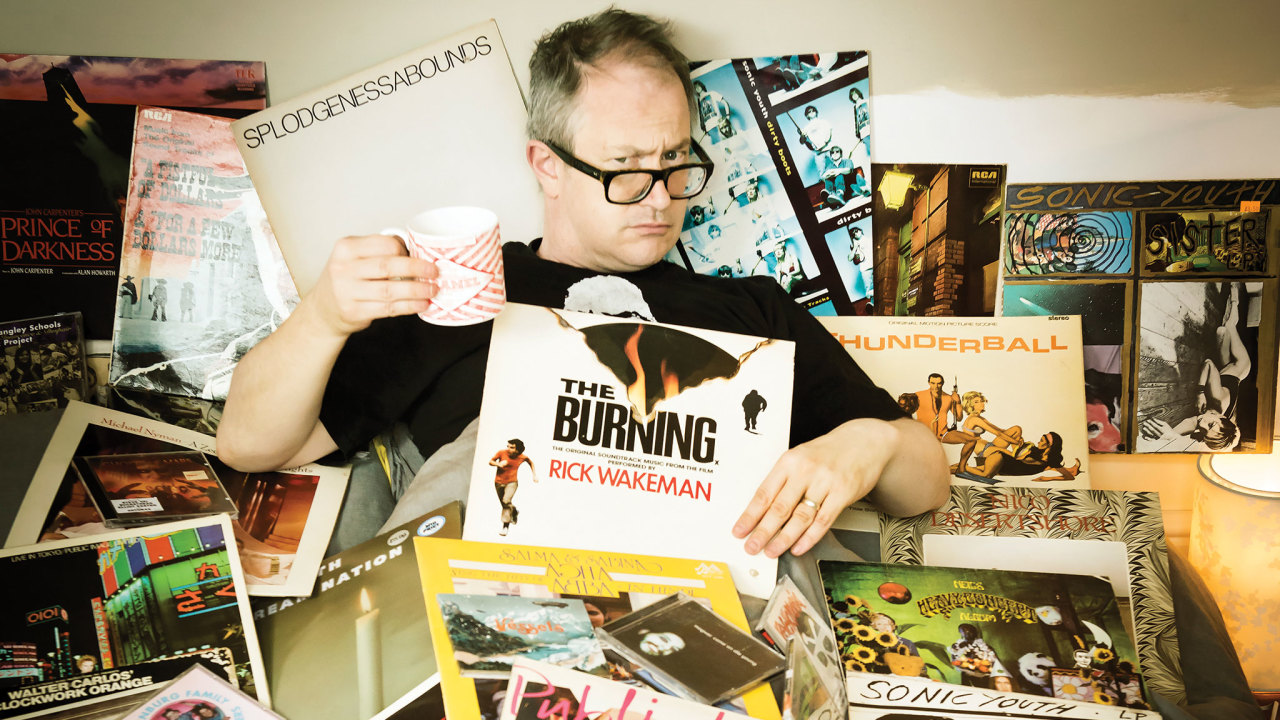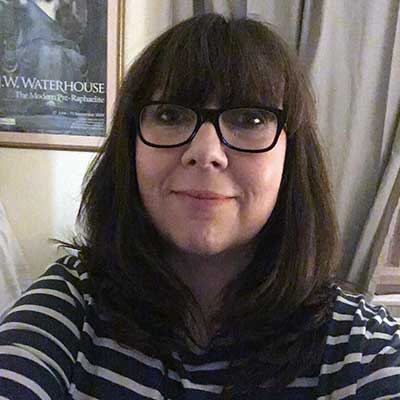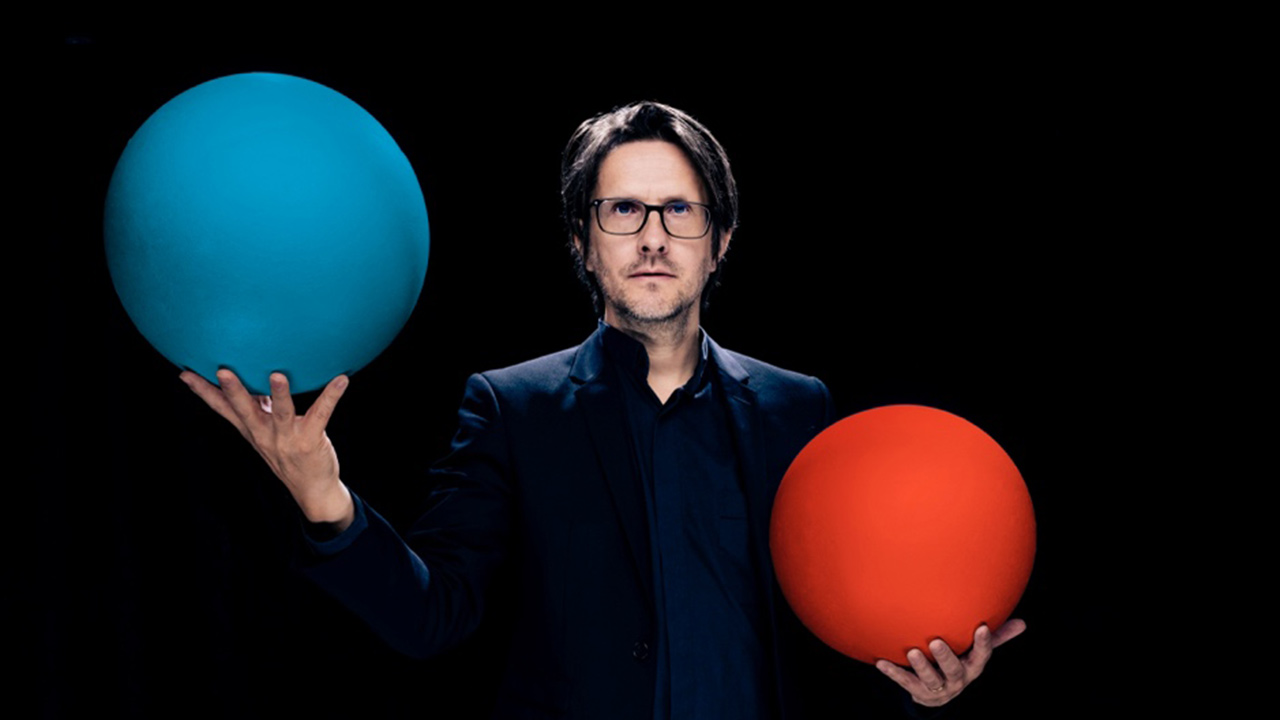My Record Collection: Robin Ince
Goblins! Ballet! And ‘those other things’! The comedian, writer, actor and Infinite Monkey Cage creator scientifically dissects his 1am earworms.

Select the newsletters you’d like to receive. Then, add your email to sign up.
You are now subscribed
Your newsletter sign-up was successful
Want to add more newsletters?

Every Friday
Louder
Louder’s weekly newsletter is jam-packed with the team’s personal highlights from the last seven days, including features, breaking news, reviews and tons of juicy exclusives from the world of alternative music.

Every Friday
Classic Rock
The Classic Rock newsletter is an essential read for the discerning rock fan. Every week we bring you the news, reviews and the very best features and interviews from our extensive archive. Written by rock fans for rock fans.

Every Friday
Metal Hammer
For the last four decades Metal Hammer has been the world’s greatest metal magazine. Created by metalheads for metalheads, ‘Hammer takes you behind the scenes, closer to the action, and nearer to the bands that you love the most.

Every Friday
Prog
The Prog newsletter brings you the very best of Prog Magazine and our website, every Friday. We'll deliver you the very latest news from the Prog universe, informative features and archive material from Prog’s impressive vault.
“I’m from Rickmansworth, which is why Douglas Adams’ The Hitchhiker’s Guide To The Galaxy is such an important work for me [it’s mentioned on the first page – Sci-Fi Ed].
Surrounding us were Chorleywood and Chalfont, barely towns and little use for buying records until you got to Woolworths in Amersham, where I’d get an Ennio Morricone soundtrack for £1.99 and a Pop Hits covers LP for the same. Later, I’d be off to Pinner Recordery to buy ‘proper’ albums.
My relationship with weirder music started with film soundtracks. My friends were like, ‘this is boring, rubbish’, as hipper stuff like John Barry hadn’t taken off at that point. I used to tape things off the television, getting little bits of soundtrack on C90s. That’s how
I had a copy of Tony Banks’ soundtrack to Michael Winner’s abysmal remake of The Wicked Lady. Then I got hooked on instrumentals and would listen to TV themes like Who Pays The Ferryman? and my mum’s copy of Eye Level – or rather the far superior B-side, Distant Hills, the theme to Crown Court. I developed a very broad music taste from listening to John Peel, reading Melody Maker and buying as much cheap vinyl as I could at any record sale. From the moment I bought the first The Specials LP, though, I was drawn to independent releases rather than chart records.
My first really important album was Jeff Wayne’s War Of The Worlds. It was perfect for a nine-year-old who was into science fiction, with its gatefold sleeve, lush pages and lurid images of the red weed. I still love it.
The first HMV sale I went to, aged about 13, I found Rick Wakeman’s The Burning for 50p. I was a big horror film fan and The Burning wasn’t officially a ‘nasty’ but it made the Director of Public Prosecutions warning list. It’s about Cropsey, a disfigured caretaker who gets his revenge on children in a summer camp – I bought it mainly cos of that. Rick’s soundtrack is great, some beautiful piano bits, then it gets that wonderful ‘man in a goblin suit-dancing’ synth sound in, on nearly every track.
Which leads us to Goblin, the band. I’d read Starburst or House Of Hammer magazines, knowing many horror films from just stills – often they were better than the films. Prog for me was soundtracks such as Profondo Rosso, Dawn Of The Dead and Claudio Simonetti’s Tenebrae. Horror tapes would circulate at school on cheap bootlegs; I’d also like to hear dialogue or narration, like Basil Rathbone reading the stories of Edgar Allan Poe. Anything that mixed music and spoken word would have my ear. Public Service Broadcasting do that, and their skill is creating a nostalgia for someone else’s childhood, put to a futuristic soundtrack. I love that mix. And what I particularly like about new album Race For Space is that I’d never heard the full JFK speech before. There’s a reason for that: ‘We chose to go to the Moon… and those other things.’ It made me realise Kennedy’s speech could have done with an edit.
Sign up below to get the latest from Prog, plus exclusive special offers, direct to your inbox!
I think John Carpenter is prog, but he’s also simplicity. The haunting effectiveness of Halloween – you hear that motif and think ‘I hope there’s no one in a William Shatner mask near me.’ Electric keyboard music was often jaunty but he managed to make it bleak and eerie, like on Prince Of Darkness, or the sudden organ in The Fog. He’s influenced so much music from rap to dance to electronica too.
My love of things like *Mogwai *comes from Carpenter. So much of their music is theme tunes to a movie that will never be made, and the perfect thing to listen to while leafing through old horror film annuals. Listening to Come On Die Young while looking at a still of frozen hands reaching towards a Nazi will always be far better that actually seeing The Frozen Dead.
In my late teens I started buying records by Sonic Youth, My Bloody Valentine and bands like Ride and that would shape the weirder rock side of my taste. Goo stands out – yes, it’s Sonic Youth’s ‘mainstream’ album – but it’s brilliant. It has Kool Thing on it, which I find very funny. It has a point to it and it was used in a dance scene in Hal Hartley’s Simple Men, one of the greatest dances routines ever. I love that mix, like when The Fall worked with Michael Clark for the ballet version of I Am Kurious Oranj. Are The Fall prog? With the latest record, Sub-Lingual Tablet, you get to track two and say, yes! The cut-up lyrics, the wilfully odd structures… They’re ridiculously overlooked by the establishment.
I’m picking Derek Bailey, and it’s Stewart Lee’s fault. He’s been telling me for years: ‘You’ve got to get into free jazz.’ I’ve been trying for a long time. It’s wonderful live and I enjoy the organic cacophony, but I still don’t love it. Then Stewart said ‘Listen to Derek Bailey, but not Carpal Tunnel, that’s really difficult.’ But I listened and I liked it. Bailey thought he had carpal tunnel syndrome and this is an album of him re-learning how to play guitar. I have no idea why I’m drawn to the errant plucking of guitar strings over 45 minutes, but I am. Particularly at 1am when I can’t sleep.
I only got into Scott Walker cos I was scared. I liked all of the four Scott albums. But every time I looked at something like Tilt I thought, ‘It’s too much for me, I’m a idiot.’ I haven’t changed my view on me being an idiot, but when I listened to Tilt, I thought ‘This is amazing!’ His latest one, Soused, with Sunn O))), that is an incredible mixture of noises. That more than anything else I’ve listened to has made it hard for me to go back to listening to the usual verse/chorus/middle eight.
How did I get into 65daysofstatic? I was probably talking about Mogwai with people wiser than me who can recommend good stuff. They’re good in the headphones for times when you feel broken and fearful of people around you: ‘I am not the man that you see physically, I am the man that’s hearing this in his head.’
There are certain songs that never go away, and Solsbury Hill is one of them. I first heard it when I was nine, and I never stopped listening to Peter Gabriel. The first time I saw him live was at a Human Rights Now! tour in 1988. Mother Of Violence, Family Snapshot and Games Without Frontiers are terrific, and there was no lowering of his ambition with So. It’s the album he was building up to. I found out about Stanley Milgram from this record. That’s what great art – and sometimes rubbish art, ha ha – is. ‘I read or saw a thing and I want to share it with you.’ It opens up a world, and you now have a new understanding of the horrible possibilities of humanity. One minute you’re dancing to Sledgehammer, now you wonder if it’s because the man in the white coat told you: ‘Continue to dance, continue the experiment of dancing…’”
Robin’s podcast series Strange Thoughts, with Alan Moore and Grace Petrie, is available at http://www.robinince.com.
- Meet the best turntables for your record collection
- Smaller budget? No problem! These are the best budget turntables
Jo is a journalist, podcaster, event host and music industry lecturer who joined Kerrang! in 1999 and then the dark side – Prog – a decade later as Deputy Editor. Jo's had tea with Robert Fripp, touched Ian Anderson's favourite flute (!) and asked Suzi Quatro what one wears under a leather catsuit. Jo is now Associate Editor of Prog, and a regular contributor to Classic Rock. She continues to spread the experimental and psychedelic music-based word amid unsuspecting students at BIMM Institute London and can be occasionally heard polluting the BBC Radio airwaves as a pop and rock pundit. Steven Wilson still owes her £3, which he borrowed to pay for parking before a King Crimson show in Aylesbury.

